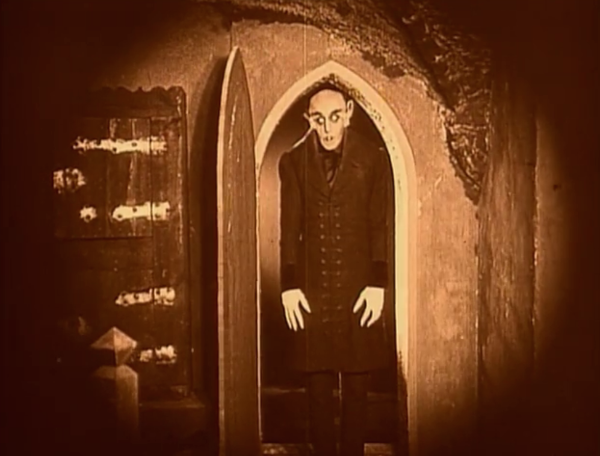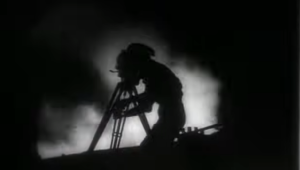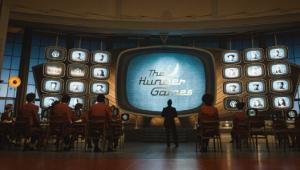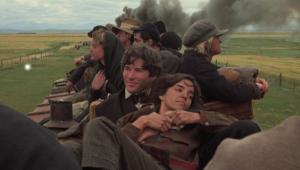Will Criterion Collection ever restore it and give us a UHD copy for us movie/monster buffs?
Nosferatu: A Symphony of Copyright Infringement

Bram Stoker published Dracula in 1897. The novel was well received, but did not make much money during the author's lifetime. When Stoker died in 1912, his wife, Florence, became literary executor. Ten years later, the German studio Prana Film decided to make a vampire movie. Because Prana did not obtain rights to the Dracula novel, or permission to adapt it, Prana commissioned a screenplay that would feature a vampire story — with sufficient alterations to avoid a copyright problem. Or at least that was the plan.
The result was Nosferatu, A Symphony of Horror, released in 1922. The film was directed by Friedrich Wilhelm Murnau and starred Max Schreck as the vampire Count Orlok. The film was low-budget, mainly intended for domestic German audiences. Yes, the movie differs somewhat from the novel. For example, Orlok can be killed by sunlight, whereas Dracula is only weakened by sunlight; Orlok's victims die, whereas Dracula's victims become vampires, etc. Although rightfully viewed as classic cinema today, it was not particularly well received and did not have much financial success.
In any case, Florence Stoker was not amused. She filed a copyright infringement suit against Prana. The case went to court and was finally decided in July, 1925 when the court found in favor of Florence Stoker. Prana had infringed Dracula's copyright. By this time, the film's box-office failure, combined with its added legal costs, caused Prana to declare bankruptcy. In its short-lived history, Nosferatu was Prana's one and only production.
Florence demanded £5,000 in damages. Fair enough. She also demanded that she receive ownership of the negative and all prints of the film. Getting hold of the physical film, of course, would let her squelch any further presentations. Okay. But she wasn't satisfied with that. And this is where the plot thickens. She wanted possession so that all copies could be destroyed. And this destruction was dutifully carried out. She owned the film. It was her call. Apparently she never even watched the movie.
So, all copies of Nosferatu were destroyed. Or at least that was the plan. One of the greatest pieces of cinema was almost lost. But, and it's a big 'but,' a few copies, tucked away here and there, survived. And in fact Nosferatu survived Florence who died in 1937 and continues to flourish to this day.
So, what have we learned? If you've read the novel and watched the movie, you're probably not too surprised that Prana lost the copyright suit. Bram Stoker's novel is one of the most original pieces of fiction ever created. In contrast, its wonderful artistry notwithstanding, the film is clearly a rip-off of the novel. Copyright is an actual thing, and while infringement judgments are sometimes subjectively applied, it probably does rightfully apply here.
But, I think everyone can be greatly relieved that the film survived its legal death sentence. Imagine, if you will, that a few of those creepy stills survived, but the film as a whole did not. We would be haunted forever, wondering what we were missing. And that would be truly terrifying.
Finally, understandably, you are probably wondering whether you are legally permitted to actually view the ill-gotten Nosferatu. You will be relieved to know that Florence's ownership claims will never rise from the dead. However, whether or not Count Orlok, or Count Dracula, pays you a visit, remains to be seen.
You did lock your doors, right?

- Log in or register to post comments


Seems unlikely to me that it will ever be released in UHD format. Insufficient interest, and would require a helluva lot of restoration work. That said, I would probably buy a copy if it ever came out.
































































